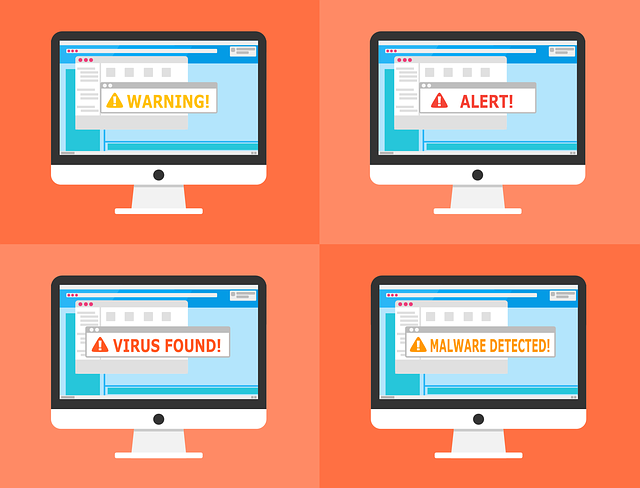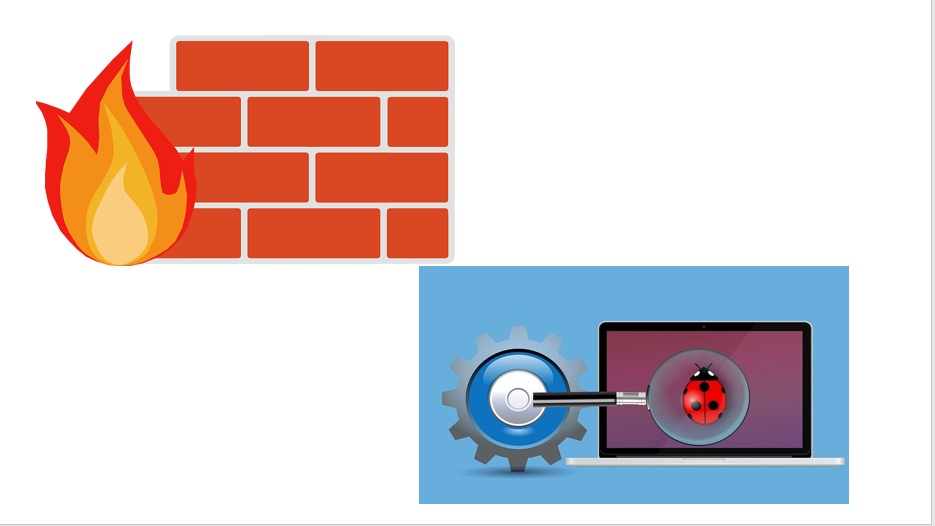Most of them think that firewall and Antivirus are the same from the process and their functions. But it’s not the same both Antivirus and firewall are part of cybersecurity tools which is present in the system with different purposes and functionalities we will see more in detail,
Firewall Definition
A firewall is an application that sits on the border of the computer Operating system which allows the internal network traffic upon validating the URLs, Port number, and IP address. i.e. It’s like an army on the border protecting the enemies entering inside the country (Computer system).
The firewall monitors the complete incoming and outgoing traffic and prevents malicious network packets. It doesn’t clean the virus, malware, etc., it only helps in monitoring your computer from external sources to gain access and allow the data flow in.

Types of Firewall
There are 3 types of firewalls
- Network layer Firewall – It also called Packet filter or Screening filter firewalls which monitors the inbound and outbound traffics based on the predefined rules in the applications. But there is a possibility of breaching this type of firewall, but advanced types of packet filter are now available with Dynamic packet filter and Stateful packet filter.
- Application gateway firewall – It behaves like a proxy server that monitors the flow of the traffic at the application level and hides the exact Private IP address or NAT address to the external world. This firewall is also referred to as a Proxy server firewall.
- Circuit level Gateway –Circuit gateway monitors the 3-way handshaking between the packets to check the legitimacy of the sessions initiated. Firewall traffic will be cleaned based on the particular session rules created. Similar to application gateway, Circuit gateway is inexpensive and has the advantage of hiding the Original IP info about the private network. This gateway works at the session layer.
Antivirus Definition
Anti-virus software that is created to help in detecting, Identification, of the virus, malwares & Trojan that enter the computer system. It also helps in searching and detecting the known malwares and threats from the computer and blocking the suspicious threat behaviour. It’s always a good practice to keep the Antivirus software up to date to detect the latest threats.

Types of Antivirus detections,
Here are few antivirus detection techniques which help the software from protecting the computer from various virus, Trojan and malware attacks.
- Heuristics- This helps the antivirus software to detect new or a variant or a modified version of the malware, even though in the absence of the latest virus definitions.
- Behavioural Blocking- It helps Intrusion Detection mechanism,suspicious behavior includes unpacking of malicious code, modifying the host files, or observing keystrokes.
- Data mining techniques- This is one of the latest approaches in malware detection that security, it uses machine learning and data mining techniques to detect the fileless malware without the signatures as the previous detection.
Types of Antivirus Scan
- On-Demand Scanning – This type of scan searches the contents of the disks, directories, and files, as well as boot sectors and system components.
- Real-Time Protection– memory-resident scanning or background guard.
- Smart Scans– antivirus only scans selected files that are more suspicious to be altered or infected.
- Start-up Scanning -It does a quick scan of the boot sectors and critical system files, instead of a full disk scan that takes a long time to finish.
Difference between Firewall and Antivirus software.
- The main focus of the Firewall is to protect the computer from external traffic using Port numbers, IP addresses, URLs based on the rule implemented, whereas in Antivirus main focus is to scan, detect, prevent and remove the malicious files from the computer.
- Firewall deals only with external threats, whereas the Antivirus checks for both internal and external threats based on the malware signatures.
- Firewall can be bypassed using IP spoofing and routing attack techniques, whereas the Antivirus can identify the malware once the signature and pattern of the virus are captured.
- The firewall works on the network protocol level to protect against unwanted traffic intrusions, while Antivirus works on the Operating system only by scanning the programs to detect viruses, Trojan, malware.
- The firewall’s limitation is that it cannot block the internal attacks once the network is bypassed, while antivirus limitation is that it cannot check the read-only files as the virus cannot modify the files without changing the file permission to modify.
- Firewall checks the malicious content based on the rules defined to check, whereas Antivirus checks the files with signature-based and behaviour-based.
